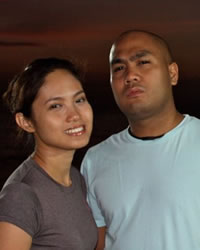Ilocano in Philippines

Photo Source:
R924 - Flickr
Creative Commons
|
Send Joshua Project a map of this people group.
|
| People Name: | Ilocano |
| Country: | Philippines |
| 10/40 Window: | No |
| Population: | 10,543,000 |
| World Population: | 10,654,600 |
| Primary Language: | Ilocano |
| Primary Religion: | Christianity |
| Christian Adherents: | 99.00 % |
| Evangelicals: | 19.95 % |
| Scripture: | Complete Bible |
| Ministry Resources: | Yes |
| Jesus Film: | Yes |
| Audio Recordings: | Yes |
| People Cluster: | Filipino, Central |
| Affinity Bloc: | Malay Peoples |
| Progress Level: |
|
Introduction / History
The Ilocano people, also known as Iloko or Ilokano, are one of the largest ethnolinguistic groups in the Philippines, with a population of over 10 million in the country and more than 10.8 million worldwide. Their primary language is Ilocano, a member of the Austronesian language family. The language has a complete Bible translation and is used in daily life, education, and religious contexts.
Historically, the Ilocanos originated from the northwestern region of Luzon, particularly in the Ilocos provinces, La Union, and parts of Cagayan Valley. Over time, many migrated to other parts of the Philippines, including Mindoro and Mindanao, and abroad to countries like the United States, Canada, and Guam. Their migration patterns reflect a strong desire for economic opportunity and community resilience.
What Are Their Lives Like?
Ilocano communities are known for their hardworking nature, frugality, and strong family values. In rural areas, many engage in farming, fishing, and small-scale trade, while urban Ilocanos often work in education, government, and business sectors. Overseas Ilocanos are active in healthcare, hospitality, and skilled trades.
Cultural traditions such as folk dances, music, and festivals remain vibrant, especially during religious celebrations. Community life is centered around family, church, and local gatherings. Education is highly valued, and literacy rates are relatively high.
What Are Their Beliefs?
The Ilocano people are predominantly Christian. Roman Catholicism is the dominant tradition, deeply integrated into daily life and cultural practices. Churches play a central role in community life, and religious festivals are widely celebrated. They also have a strong Evangelical presence.
While Christianity is widespread, some Ilocanos blend Christian beliefs with folk traditions, including superstitions and indigenous healing practices. There is a growing need for deeper discipleship and biblical literacy to strengthen faith and spiritual maturity.
What Are Their Needs?
They need holistic ministry efforts that integrate spiritual growth with community development, education, and economic empowerment. They need support for youth and families, especially in diaspora communities, to maintain cultural identity and spiritual vitality.
They need contextualized discipleship and biblical teaching to help believers grow in their understanding of Scripture and apply it to daily life.
Prayer Points
Pray for a spiritual awakening among Ilocano churches, that believers would pursue deeper faith and biblical understanding.
Pray for the development of strong, culturally sensitive Christian leaders who can disciple others effectively.
Pray for the younger generation to remain rooted in Christ amid modern influences and secularism.
Pray for unity among Ilocano believers, both in the Philippines and abroad, to become a sending force for missions.
Pray for the effective use of the Ilocano Bible, JESUS Film, and audio recordings to reach hearts and transform lives.